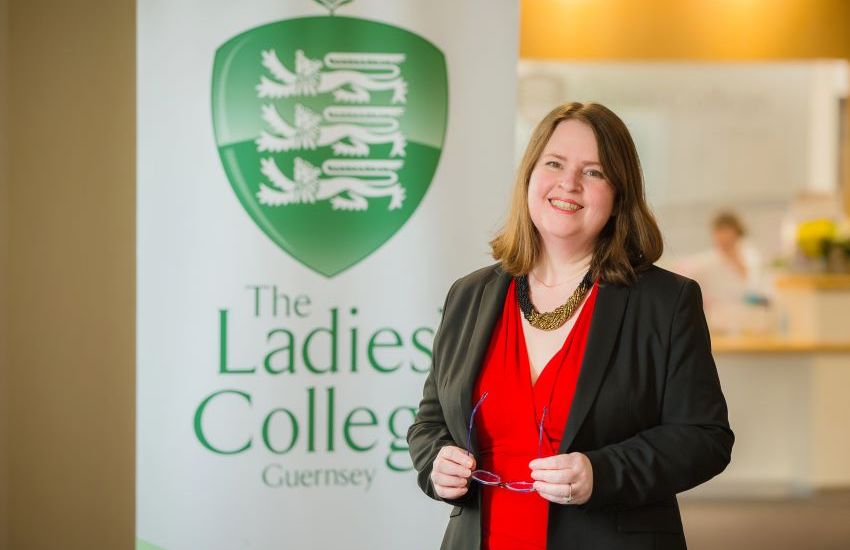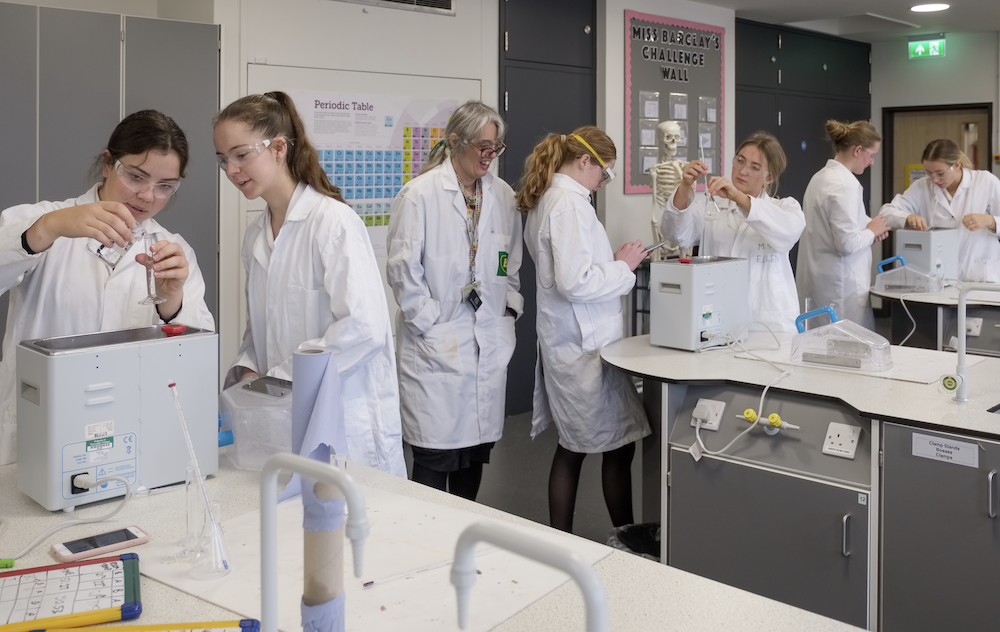


The headteacher of The Ladies College has previously spoken to Express about her educational aspirations, now she's penned her own thoughts about how students are being encouraged to push further forward on their own journeys.
Daniele Harford-Fox focused on science, which was a favourite subject of her own while at school.
"The thing I remember most about wanting to go to secondary school was getting to do actual science experiments. It was being trusted with the bunsen burner, dipping litmus paper into odd looking chemicals, slicing and dicing and peering under microscopes. It’s what, when we imagine learning, many of us picture.
But, as I journeyed through school, I began to feel frustrated with the pre-set, highly controlled experiments. I was being asked to carry out studies that people already knew the answer to, to dissect plants that others had already completely mapped. I was imitating experimentation and research, for good educational reasons of course, but still, I was looking for more.
The way we often teach science is to teach the answers that science has found. We sit pupils down and they memorise the carbon cycle and learn F=Ma and practice applying it. And these things have real worth. But science is not about the answers, science is about the method. It is about experimenting and replicating, falsifying and testing until, through much failure we inch closer to truth. And not understanding this is dangerous. The recent crisis of trust we have had that has led to ‘anti-vaxers’ and ‘flat earthers’, is not caused by them not being taught facts, it’s caused by them not understanding the difference between your aunt Marjorie’s theory on how the world works and a scientific theory.
It’s about not understanding the immense difference between the scientific method and relying on intuition, supposition or belief.
In previous generations, this wasn’t as culturally vital. Truth was what was in textbooks, beliefs were what was said around the dinner table. But with the advent of the internet sources are thrown together in a chaotic jumble so that people will share on Facebook a position put forward by Joe in his garage in a context that carries as much weight as a meta-analysis from the Cambridge Biosciences Department.
And the impact on that can be catastrophic. Civilisations are built on a shared agreement of how we determine truth. If nothing can be factually established, then we have no shared framework or foundations on which to build our policies or social norms. As we saw during Covid, the implication of that can be fatal.
We, therefore, have to do more than just throw worksheets and textbooks at young people. We have to start to teach them why science is fundamentally different from other ways of seeking truth and we have to give them the skills to start to explore those ideas themselves.

Pictured: Students at The Ladies' College carrying out experiments.
The work The Ladies’ College has been doing with this is some of the best in the British Isles (and I can say that as someone who can take no credit for it). I’m therefore delighted that Institute for Research in Schools has just recognised the work of the College in an awards ceremony at the Crick Institute in London.
And as with all great things in education, at the heart of this culture of joyful curiosity and academic rigour, is a teacher. Dr Marshall, a scientist herself filled to the brim with both curiosity and a passion, has driven this entire initiative, led teams of girls to pursue not just the traditional applied sciences of medicine or engineering, but also to explore the wide and developing work of research science.
One team of girls studied the College’s carbon footprint and made recommendations that led to the College putting solar panels on the roof and the introduction of using a wormery to manage 50% of food waste. Another of our girls is working on mapping the sea temperatures around Guernsey. Most recently the girls have presented at the International Women in Engineering event at the college of FE, demonstrating how to make bioplastic, as well as working with the Pollinator Project to explore the impact of the environment on the number of pollinators visiting strawberries.
The girls have presented at virtual student research conferences, a global climate change conference and will be taking a workshop at the Cambridge Net Zero conference. They have explained their findings to boards of adults, held their own in those forums, reviewed and examined their research, and built both deep levels of scientific skill and also the curiosity and ability to ask a question and seek an answer.
As we move deeper into the rapidly changing technological world of the 21st century, it becomes more and more vital to genuinely question what skills we are building in our young people. It is no longer about simply reproducing old pieces of research in controlled and imitative ways. We have to be bolder. We have to allow our students to ask real questions, to seek real answers, to fail, to improve and to present what they find.
The partnership with IRIS has had a significant impact on our girls, and I’m excited to see how the journey continues."